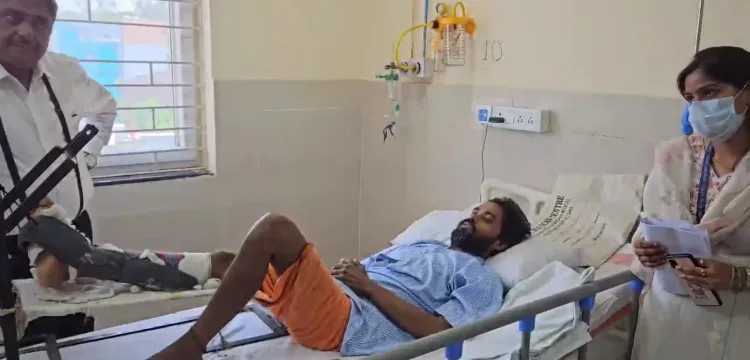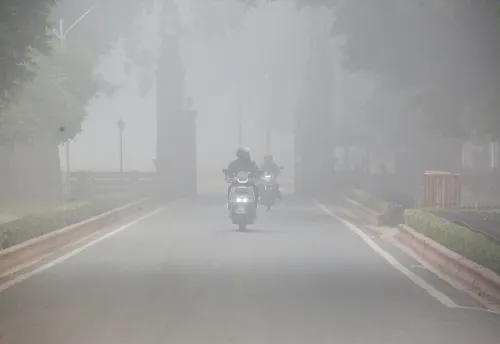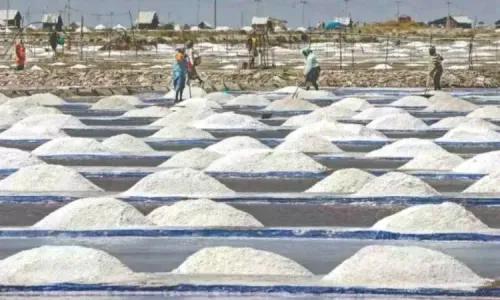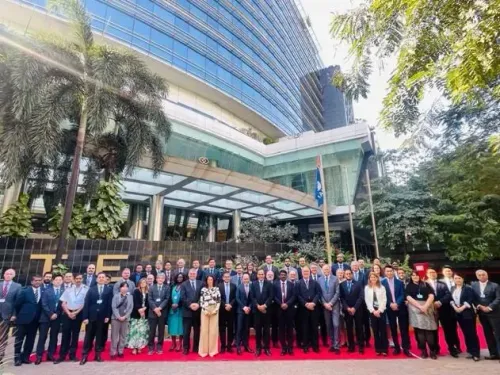How is Bihar's Gaya Beneficiary Receiving Free Treatment Under Ayushman Bharat?

Synopsis
Key Takeaways
- Ayushman Bharat offers free treatment up to Rs 5 lakh annually.
- The scheme significantly benefits the poor and lower-middle-class populations.
- Over 41 crore Ayushman cards have been issued nationwide.
- It addresses the needs of the missing middle in healthcare.
- The PMBJP initiative complements Ayushman Bharat by providing affordable medicines.
Gaya (Bihar), June 7 (NationPress) The Ayushman Bharat Pradhan Mantri Jan Arogya Yojana (AB-PMJAY), recognized as the world’s largest publicly funded health assurance program, serves as a crucial support system for numerous Indians. It provides free medical treatment up to Rs 5 lakh annually for secondary and tertiary hospital care, fundamentally transforming India's healthcare environment—particularly benefiting the economically disadvantaged and lower-middle-class segments.
In Gaya district of Bihar, the influence of this significant initiative is vividly illustrated through the experiences of Lalan Chaudhary, a farmer hailing from Nalanda district. Currently receiving treatment at Magadh Medical College in Gaya, Lalan is availing all necessary medical services—including surgery, medication, accommodation, and meals—entirely free of charge through his Ayushman Bharat card.
In an interview with IANS, Lalan shared, “The hips of both my legs were damaged. I’ve been under treatment for the last one and a half months, and it’s all being done free of cost through the Ayushman card. Where would poor people like us get Rs 5 lakh for treatment? We are thankful to Prime Minister Narendra Modi. Medicines, food—everything is taken care of. This is an excellent scheme.”
Lalan became aware of the scheme when a government outreach team came to his village.
“They assisted us in creating the Ayushman card right at home. Now, many people in our village are benefiting from it,” he remarked.
Such personal narratives exemplify the broad transformation within India’s healthcare system over the past decade. Through a blend of digitization, public sector involvement, and targeted welfare efforts, the government has made quality healthcare accessible to millions who previously faced high expenses and bureaucratic hurdles.
Importantly, Ayushman Bharat addresses the needs of the “missing middle”—families that do not qualify for traditional subsidies but cannot afford expensive private insurance. By facilitating access to timely hospitalization and treatment without plunging families into debt, it has redefined the conversation surrounding medical affordability.
As of May 30, 2025, over 41 crore Ayushman cards have been issued across 33 States and Union Territories. These cards have facilitated over 8.5 crore hospital admissions, amounting to Rs 1.19 lakh crore in treatment covered. A robust network of nearly 32,000 empanelled hospitals, including public and private institutions, guarantees that beneficiaries like Lalan Chaudhary receive continuous medical care.
The scope of the scheme was further broadened in October 2024 when the government included all senior citizens aged 70 and above, irrespective of their income. This has particularly aided elderly individuals in the middle-income bracket, providing reassurance to families faced with escalating medical costs.
Alongside Ayushman Bharat, the Pradhan Mantri Bhartiya Janaushadhi Pariyojana (PMBJP) is transforming access to affordable medications. Starting with just 80 outlets in 2014, it has expanded to a network of 16,469 Jan Aushadhi Kendras. These facilities offer high-quality generic medicines at prices 50-80% lower than branded options, all compliant with WHO-GMP standards.
Collectively, these initiatives are driving a silent yet impactful healthcare revolution in India—bridging the divide between policy and the populace, and making the right to health a tangible reality.










